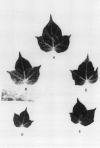Abstract
Cotton (Gossypium hirsutum L. cv Acala SJ2) plants were exposed to three levels of osmotic or matric potentials. The first was obtained by salt and the latter by withholding irrigation water. Plants were acclimated to the two stress types by reducing the rate of stress development by a factor of 4 to 7. CO2 assimilation was then determined on acclimated and nonacclimated plants. The decrease of CO2 assimilation in salinity-exposed plants was significantly less in acclimated as compared with nonacclimated plants. Such a difference was not found under water stress at ambient CO2 partial pressure. The slopes of net CO2 assimilation versus intercellular CO2 partial pressure, for the initial linear portion of this relationship, were increased in plants acclimated to salinity of −0.3 and −0.6 megapascal but not in nonacclimated plants. In plants acclimated to water stress, this change in slopes was not significant. Leaf osmotic potential was reduced much more in acclimated than in nonacclimated plants, resulting in turgor maintenance even at −0.9 megapascal. In nonacclimated plants, turgor pressure reached zero at approximately −0.5 megapascal. The accumulation of Cl− and Na+ in the salinity-acclimated plants fully accounted for the decrease in leaf osmotic potential. The rise in concentration of organic solutes comprised only 5% of the total increase in solutes in salinity-acclimated and 10 to 20% in water-stress-acclimated plants. This acclimation was interpreted in light of the higher protein content per unit leaf area and the enhanced ribulose bisphosphate carboxylase activity. At saturating CO2 partial pressure, the declined inhibition in CO2 assimilation of stress-acclimated plants was found for both salinity and water stress.
Full text
PDF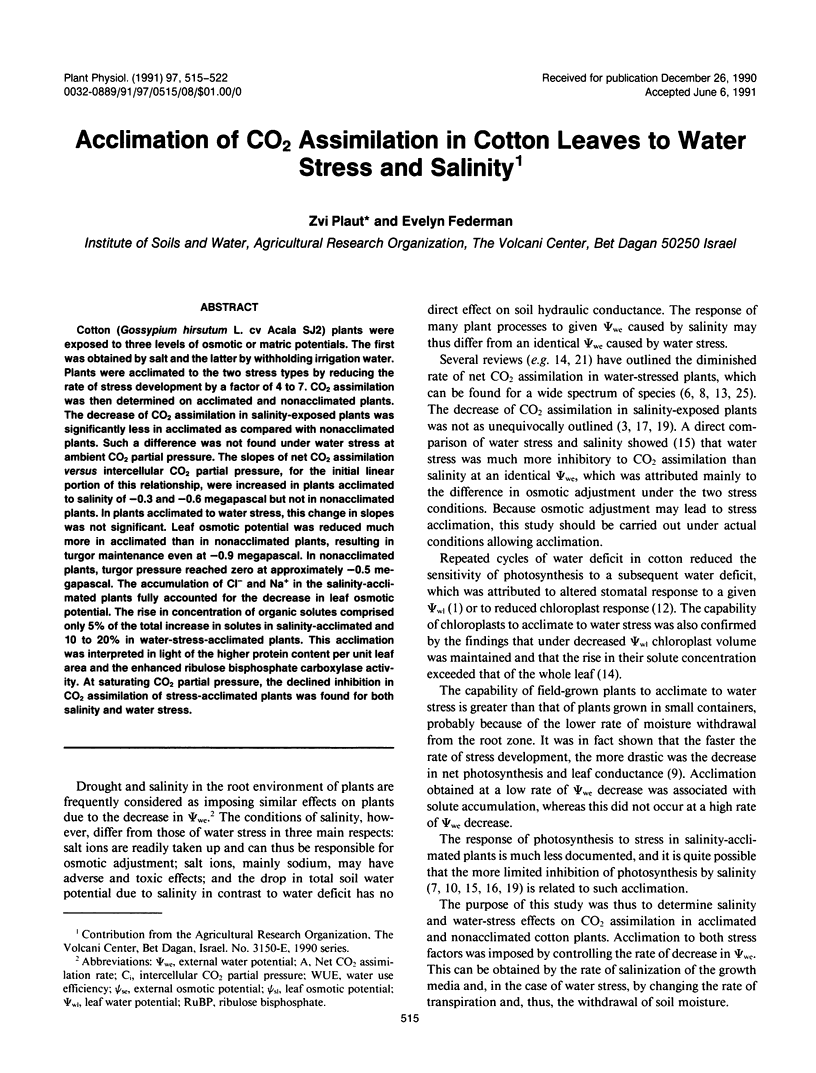
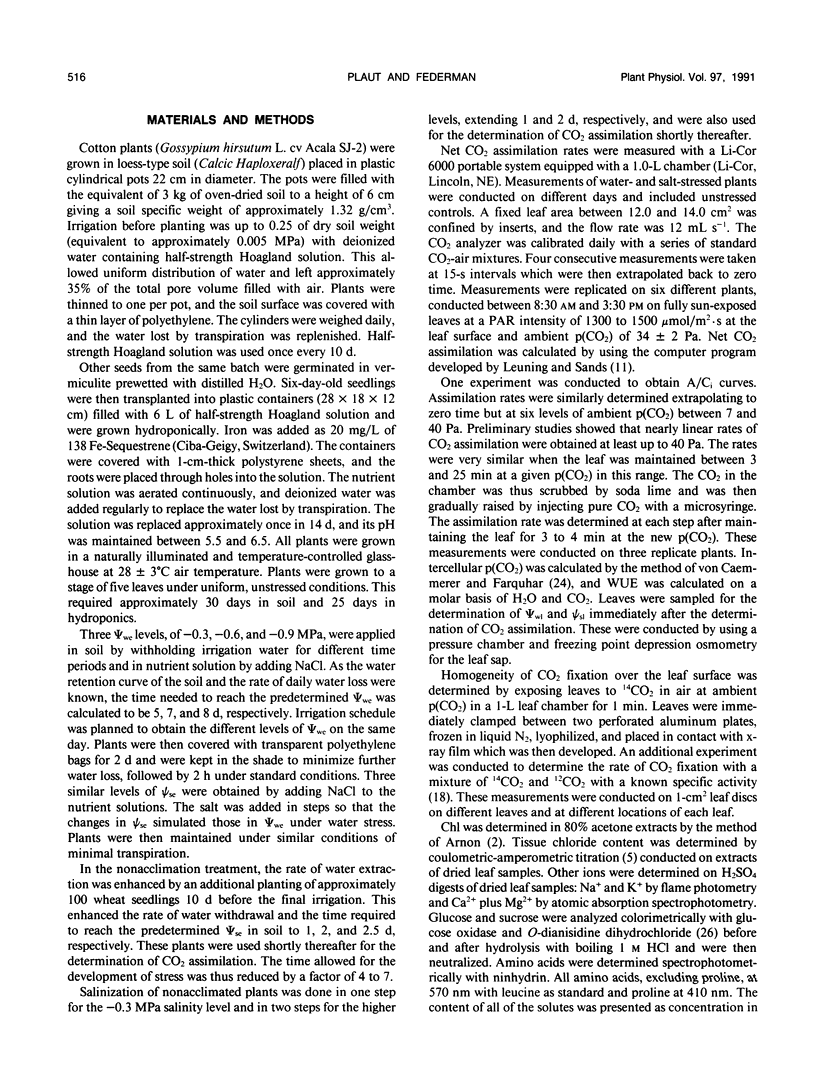
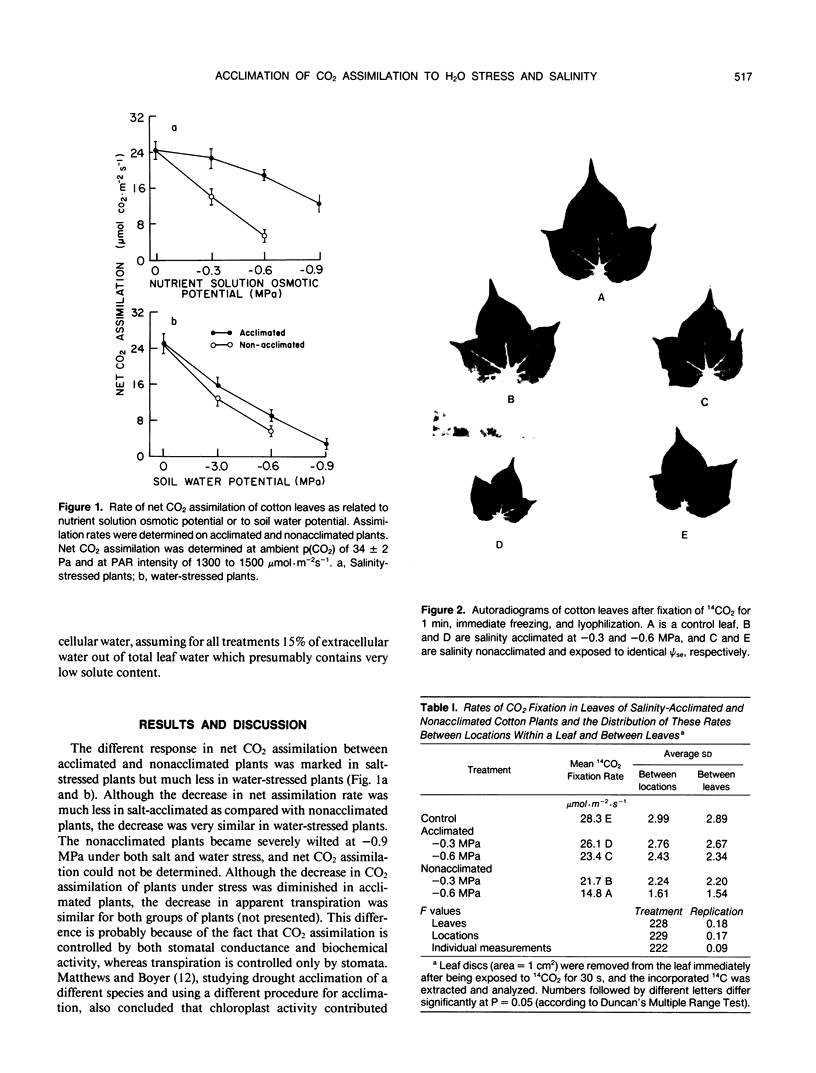
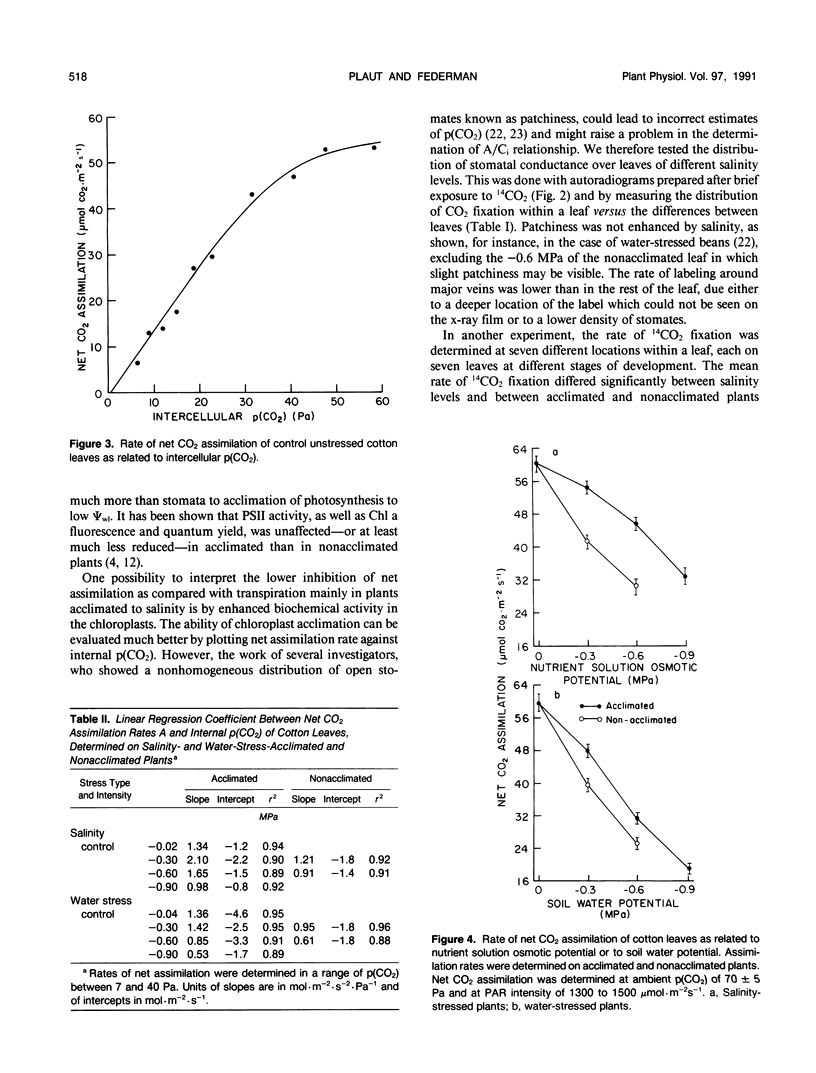
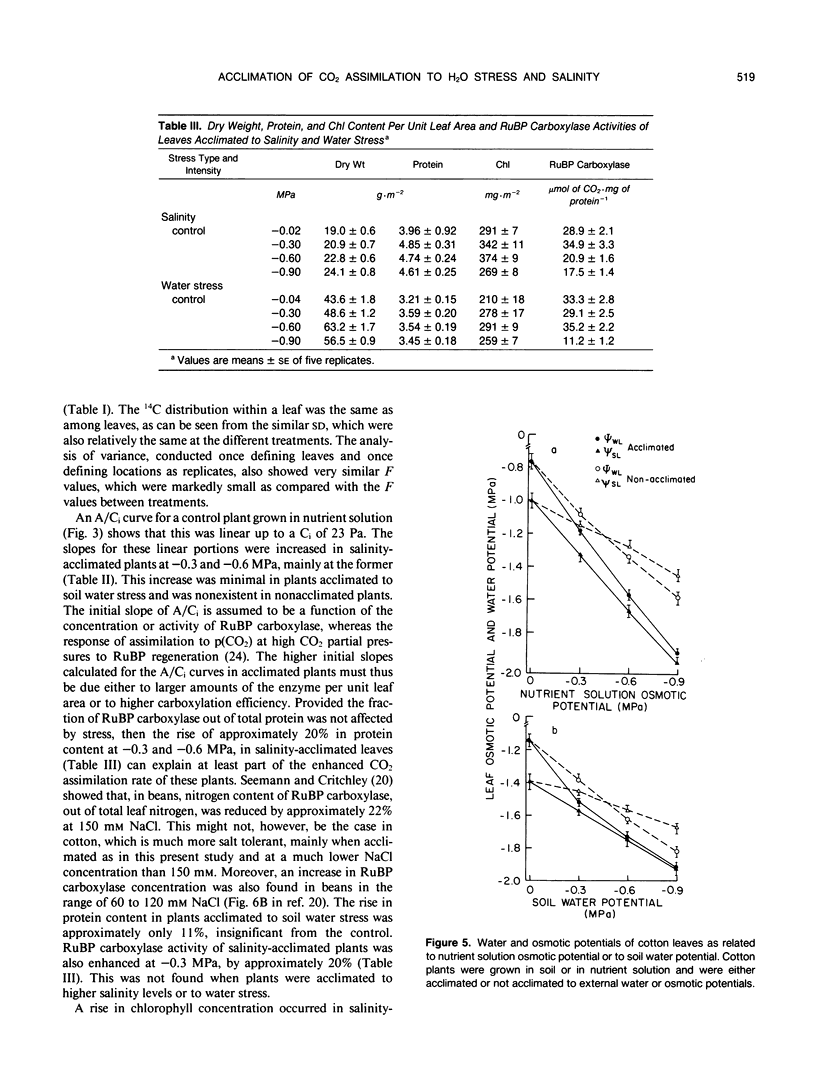
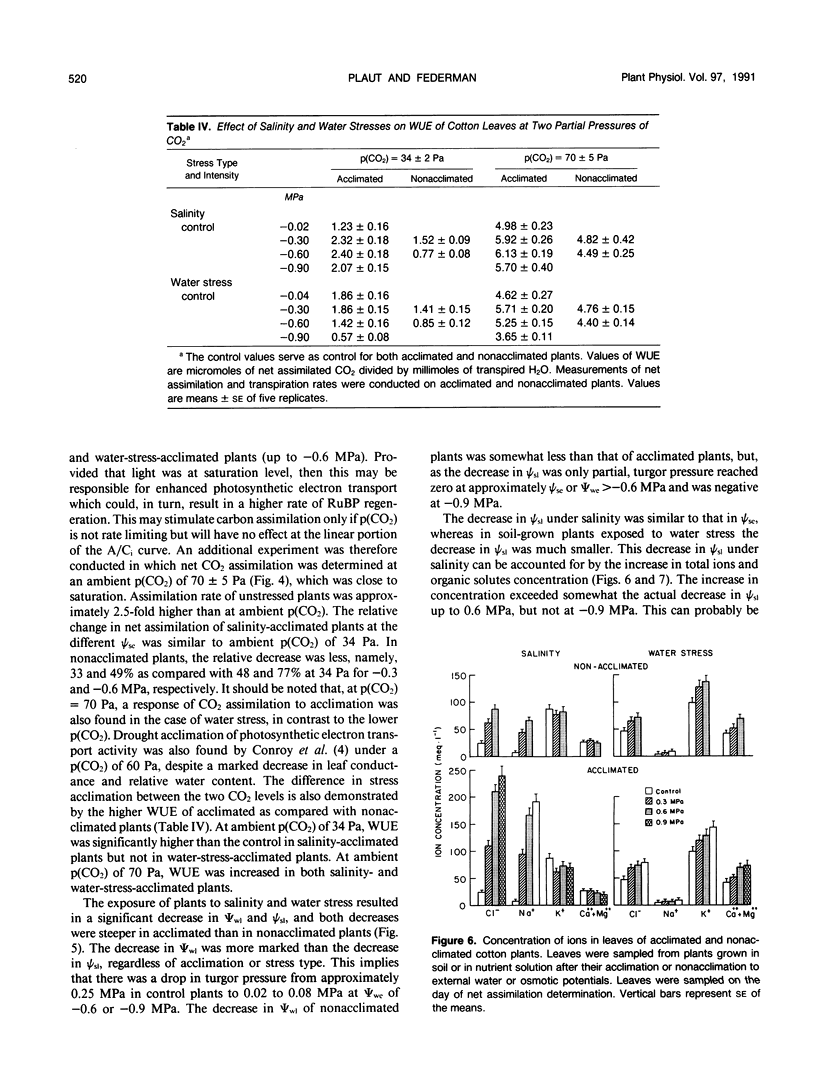
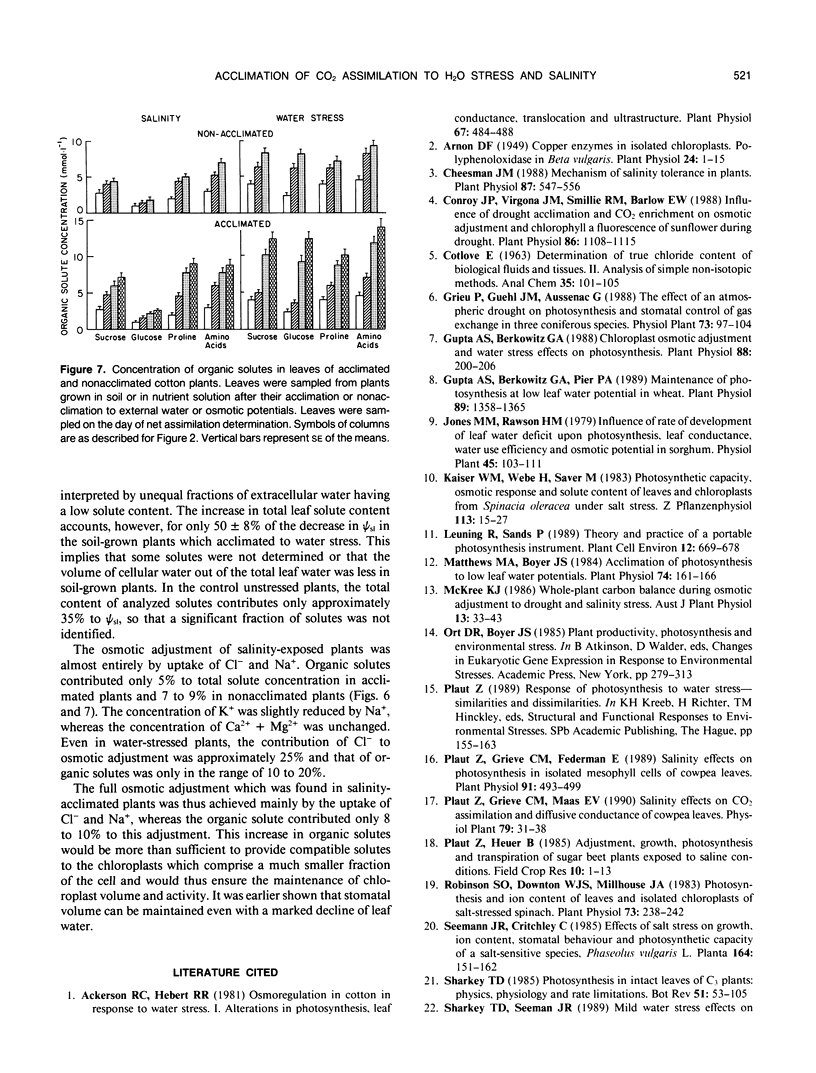

Images in this article
Selected References
These references are in PubMed. This may not be the complete list of references from this article.
- Arnon D. I. COPPER ENZYMES IN ISOLATED CHLOROPLASTS. POLYPHENOLOXIDASE IN BETA VULGARIS. Plant Physiol. 1949 Jan;24(1):1–15. doi: 10.1104/pp.24.1.1. [DOI] [PMC free article] [PubMed] [Google Scholar]
- Cheeseman J. M. Mechanisms of salinity tolerance in plants. Plant Physiol. 1988 Jul;87(3):547–550. doi: 10.1104/pp.87.3.547. [DOI] [PMC free article] [PubMed] [Google Scholar]
- Conroy J. P., Virgona J. M., Smillie R. M., Barlow E. W. Influence of Drought Acclimation and CO(2) Enrichment on Osmotic Adjustment and Chlorophyll a Fluorescence of Sunflower during Drought. Plant Physiol. 1988 Apr;86(4):1108–1115. doi: 10.1104/pp.86.4.1108. [DOI] [PMC free article] [PubMed] [Google Scholar]
- Gupta A. S., Berkowitz G. A. Chloroplast osmotic adjustment and water stress effects on photosynthesis. Plant Physiol. 1988 Sep;88(1):200–206. doi: 10.1104/pp.88.1.200. [DOI] [PMC free article] [PubMed] [Google Scholar]
- Gupta A. S., Berkowitz G. A., Pier P. A. Maintenance of photosynthesis at low leaf water potential in wheat : role of potassium status and irrigation history. Plant Physiol. 1989 Apr;89(4):1358–1365. doi: 10.1104/pp.89.4.1358. [DOI] [PMC free article] [PubMed] [Google Scholar]
- Matthews M. A., Boyer J. S. Acclimation of photosynthesis to low leaf water potentials. Plant Physiol. 1984 Jan;74(1):161–166. doi: 10.1104/pp.74.1.161. [DOI] [PMC free article] [PubMed] [Google Scholar]
- Plaut Z., Grieve C. M., Federman E. Salinity effects on photosynthesis in isolated mesophyll cells of cowpea leaves. Plant Physiol. 1989 Oct;91(2):493–499. doi: 10.1104/pp.91.2.493. [DOI] [PMC free article] [PubMed] [Google Scholar]
- Robinson S. P., Downton W. J., Millhouse J. A. Photosynthesis and ion content of leaves and isolated chloroplasts of salt-stressed spinach. Plant Physiol. 1983 Oct;73(2):238–242. doi: 10.1104/pp.73.2.238. [DOI] [PMC free article] [PubMed] [Google Scholar]
- Sharkey T. D., Seemann J. R. Mild water stress effects on carbon-reduction-cycle intermediates, ribulose bisphosphate carboxylase activity, and spatial homogeneity of photosynthesis in intact leaves. Plant Physiol. 1989 Apr;89(4):1060–1065. doi: 10.1104/pp.89.4.1060. [DOI] [PMC free article] [PubMed] [Google Scholar]
- Vu J. C., Yelenosky G. Water Deficit and Associated Changes in Some Photosynthetic Parameters in Leaves of ;Valencia' Orange (Citrus sinensis [L.] Osbeck). Plant Physiol. 1988 Oct;88(2):375–378. doi: 10.1104/pp.88.2.375. [DOI] [PMC free article] [PubMed] [Google Scholar]
- WASHKO M. E., RICE E. W. Determination of glucose by an improved enzymatic procedure. Clin Chem. 1961 Oct;7:542–545. [PubMed] [Google Scholar]



